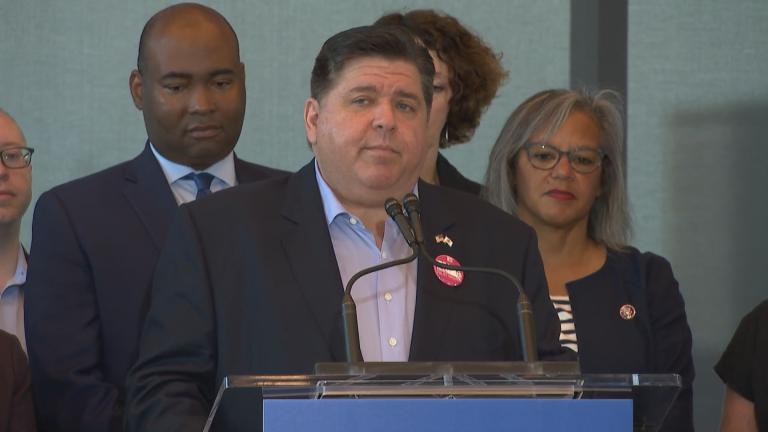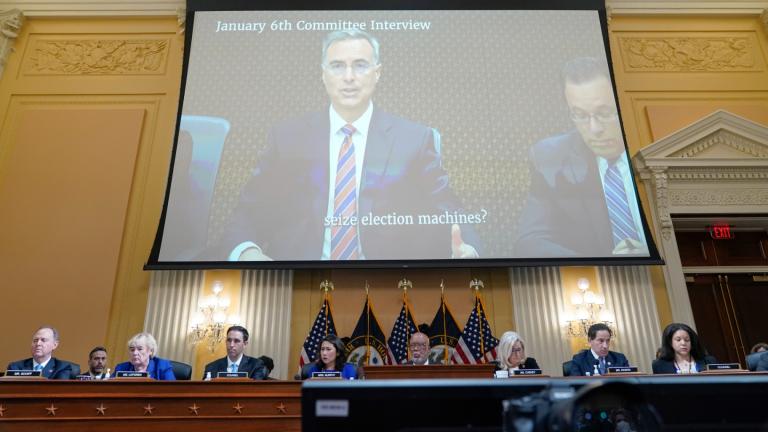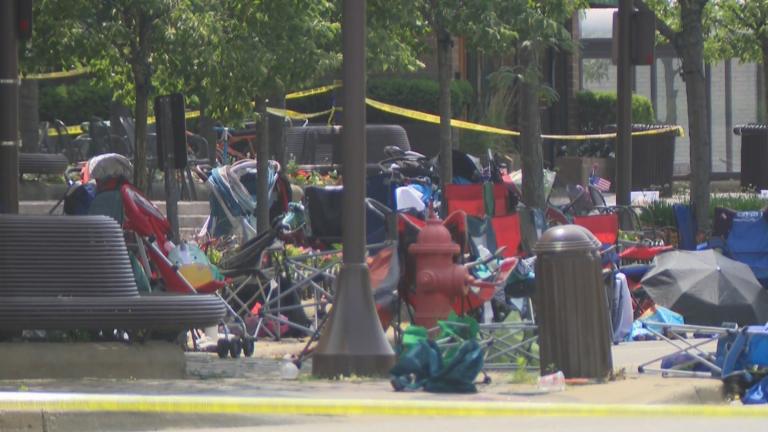In 2016, there were nearly 800 homicides in Chicago – a 20-year high. That number dropped to 561 by the end of 2018.
U.S. Rep. Robin Kelly (D-2nd District), who co-chairs the House Gun Violence Prevention Task Force, has introduced a number of bills addressing gun violence.
“Take Ebola. I think a couple of people died in the United States and we immediately jumped and gave resources and things like that,” Kelly said. “Well, look how many people are dying.”
“We talk about the mass shootings a lot, but we don’t talk about the everyday shootings. And when you add up, the aggregation is much more than the mass shootings,” she said. “How many have to die before we do something? I mean, it’s absolutely ridiculous.”
Kelly believes that collecting data will help confront the epidemic in the same way that the Surgeon General’s report on smoking affected tobacco laws and policy.
More coverage: Watch this full special episode of “Chicago Tonight.”
One of Kelly’s gun violence reduction bills, HR 1114, would require the U.S. Surgeon General to submit an annual report to Congress about the effects of gun violence on public health.
“The Surgeon General is our nation’s doctor. They are a trusted voice on public health and it is clear that gun violence IS a public health crisis. Each year, we lose nearly 40,000 Americans and billions in healthcare and economic costs to gun violence, not to mention the long-term mental and physical health impacts in our communities,” Kelly wrote on her website. “After leaving office, former Surgeon General C. Everett Koop attempted to raise gun violence as a public health issue in the 1980s, likewise, former Surgeon General Vivek Murthy repeatedly used his platform to call for action to address this public health threat.”
But with the current makeup of the U.S. Senate, Kelly says her bill has little chance of passing.
“Even if it passes in the House, Mitch McConnell is not going to let it pass in the Senate,” Kelly said. “He’s not interested in passing gun safety bills, even though Kentucky has lost 1,500 people in the last five years due to gun violence.”
At the state level, the Illinois House has passed a bill called “Fix the FOID,” which requires those applying for a Firearm Owners Identification (FOID) card to submit fingerprints, and requires background checks for all gun sales, among other things. The Democratically controlled Illinois Senate still needs to take it up.
“We’re waiting for the (Illinois) Senate to pick it up and possibly pass it. You know, the problem is the Congress,” said state. Rep. La Shawn Ford (D-8th District). “People here, they’re doing everything they can.”
There is some good news, according to figures released by the Chicago Police Department: As of the beginning of November 2019, homicides in the city are down 12% year-over-year, but the numbers are still staggering: 429 people killed.
According to police data, shooting incidents are down 10% year-to-date, from 2,060 in 2018 to 1,850 in 2019.
“There are some positive things that are going on in Chicago. The violent crime is trending downward,” said U.S. Rep. Jesus “Chuy” Garcia. “The investment that’s been made in Chicago Public Schools and providing more social workers and nurses is a significant investment. There’s more collaboration going on between the Chicago Police Department and neighborhood activists and organizations.”
“We need more boots on the ground,” Garcia said. “There is a recognition that outreach workers play a key role in prevention … So if we can train more people and provide them the tools that they need, we can continue to make neighborhoods safer in Chicago.”
Related stories:
Lessons From the Front Lines of Violence Prevention and Healing
‘Firsthand’ Accounts: How Guns Changed the Course of Their Lives
WTTW Launches New Digital Series ‘Firsthand: Gun Violence’
CPD Releases New Crime Data as Trump Again Attacks Eddie Johnson








